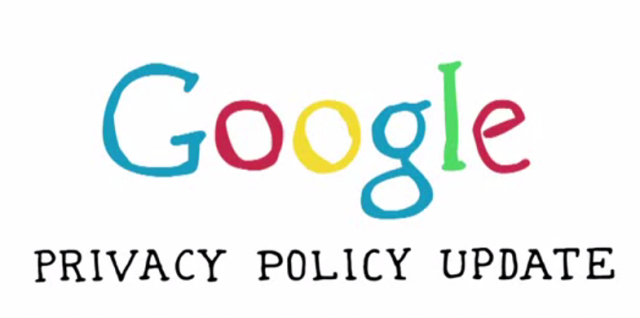 Google is defending its new privacy policy, stressing that the company isn’t collecting more data, just collecting it in a new way.
Google is defending its new privacy policy, stressing that the company isn’t collecting more data, just collecting it in a new way.
“We’re making things simpler and we’re trying to be upfront about it. Period,” said Google’s policy manager Betsy Masiello in a blog post Thursday evening.
The company recently announced big changes to its privacy policy, posting notifications throughout its products that read, “We’re changing our privacy policy and terms. Not the usual yada yada,” and, “This stuff matters.”
Where Google was, in essence, a patchwork of products governed by individual privacy policies, it is consolidating itself into one big product suite under one big privacy policy. But, as with any announcement around privacy, users become scared and unsure of where their data is going.
 In Google’s case, the data is now being used to “improve” other products. Take Search Plus Your World for example. The company’s flagship product, search, now shows “personal” results from its social network Google+. Personal results include photos, posts, and people’s accounts that are relevant to your search term. Your data is shared between the two different services, and more of this personal integration can occur under the new privacy policy.
In Google’s case, the data is now being used to “improve” other products. Take Search Plus Your World for example. The company’s flagship product, search, now shows “personal” results from its social network Google+. Personal results include photos, posts, and people’s accounts that are relevant to your search term. Your data is shared between the two different services, and more of this personal integration can occur under the new privacy policy.
“We’re not collecting more data about you. Our new policy simply makes it clear that we use data to refine and improve your experience on Google — whichever products or services you use,” said Masiello. “This is something we have already been doing for a long time.”
Another issue is the inability to “opt-out” of your data being used in different products. If you don’t want your data collected, your only option is simply not use the service in question. A slightly less extreme measure is to use different accounts for different services, so that data is not shared between them. For example, use one Google account for your mail, another for YouTube and one more for Google+. Additionally, there are always the granular privacy changes you can make within some of the products. You can also use the Google products without being logged in, though that limits you to only products that don’t require an account.
“You can use as much or as little of Google as you want,” said Masiello. “You still have choice and control.”
VentureBeat's mission is to be a digital town square for technical decision-makers to gain knowledge about transformative enterprise technology and transact. Learn More
